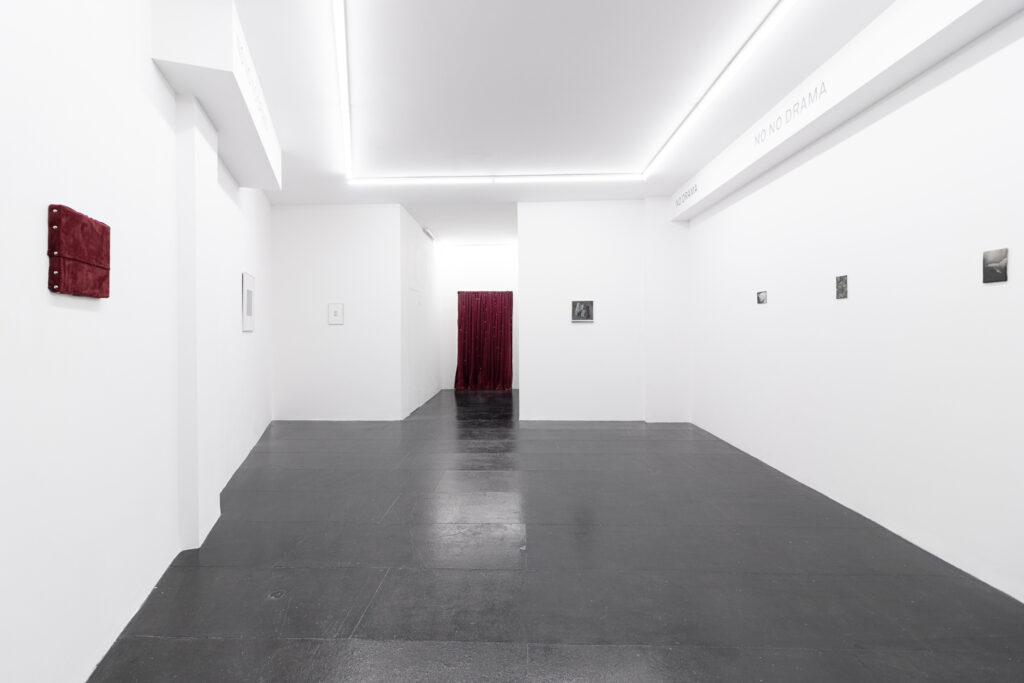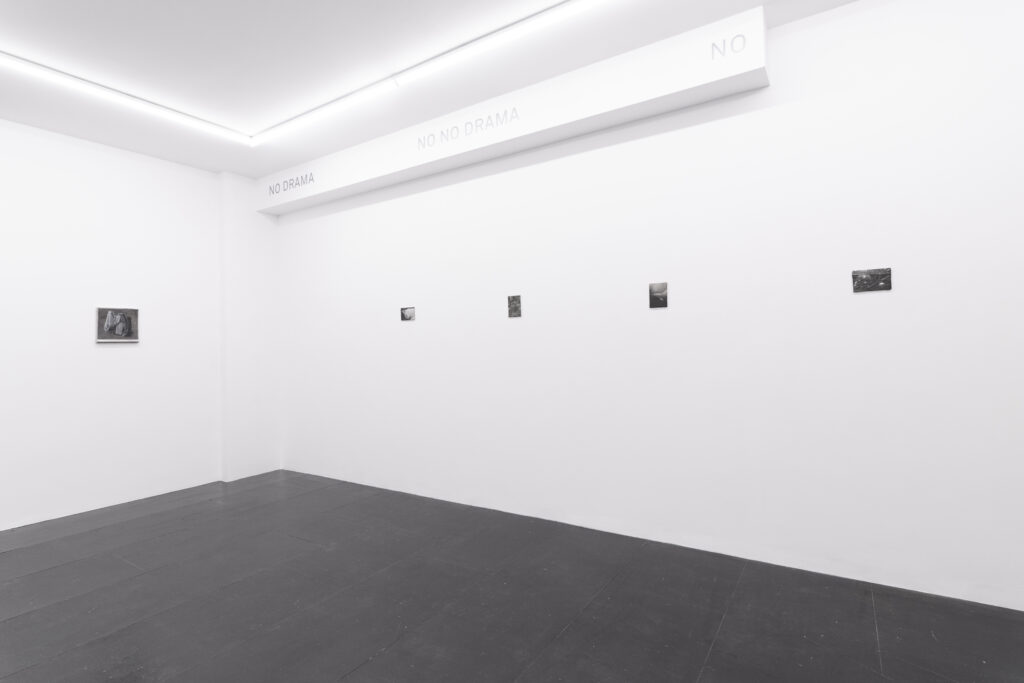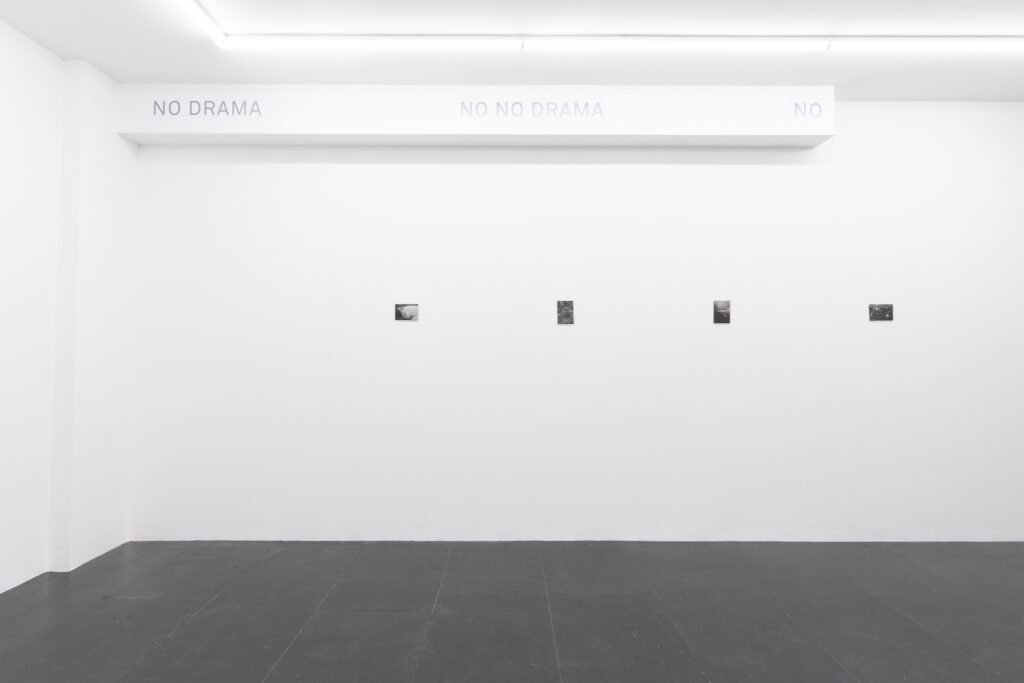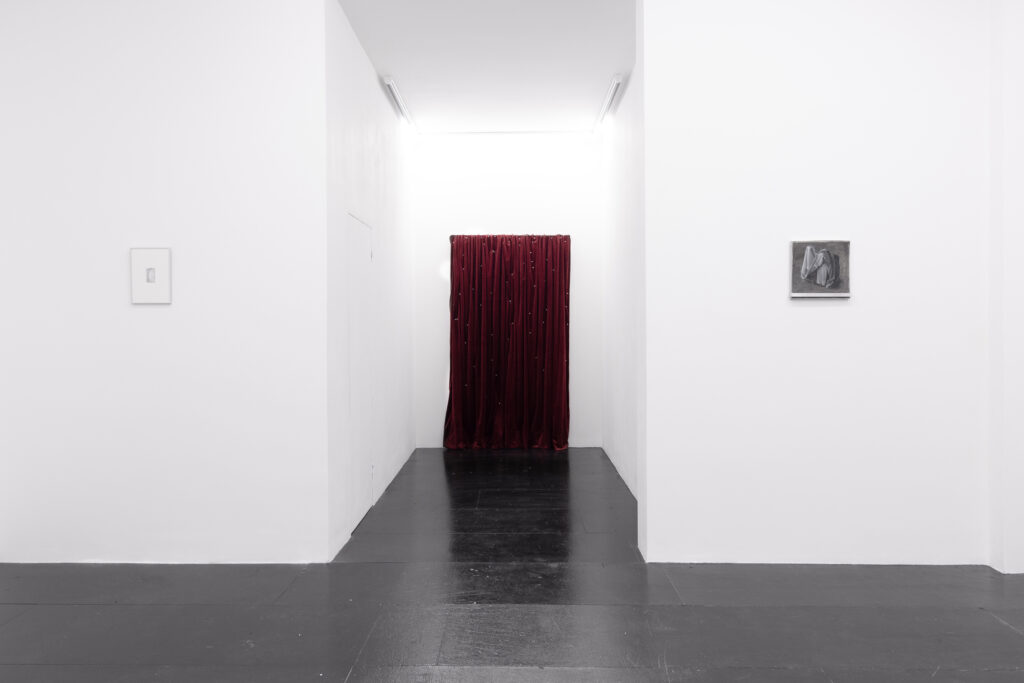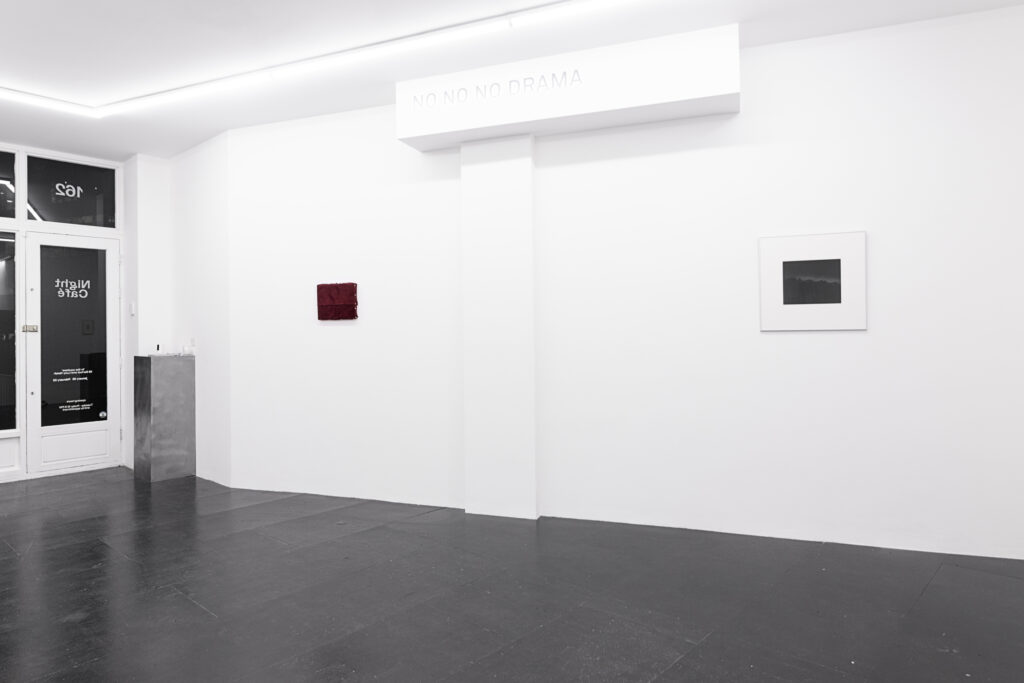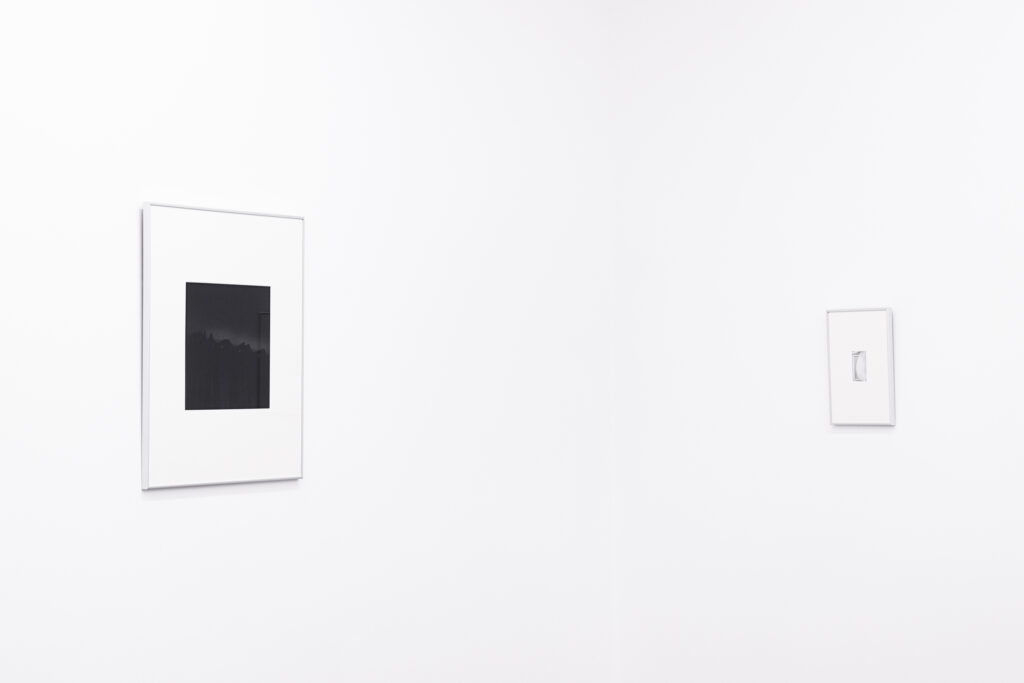Ilê Sartuzi + Lucy Neish
in the coulisse @ Night Café, London
26 Jan — 22 Feb 2024
Night Café is delighted to announce ‘in the coulisse,’ a duo exhibition with Ilê Sartuzi and Lucy Neish. In this exhibition, the artists play with notions of representations: the erosion of the distinction between reality, simulation, and authenticity.
Ever since the second half of the twentieth century, art history has undergone an undeniable and substantial shift in the realm of perception and representation. The postmodern way of thinking, asserting that reality is subjective and constructed, has deeply influenced artistic approaches of reality, leading to a questioning of grand narratives and universal truths and fostering skepticism toward traditional notions of authenticity.
Often, when viewing art, we are exposed to simulated representations of reality. Through the push and pull from registers of apparently genuine, the works transport the viewers between what is present and mediated, between memory and the actual, and between the theatrical and the mundane. By doing so, ‘in the coulise’ explores not only what images can show but also what is beyond the limits of the pictorial representations, playing with illusions, what is out-of-frame, behind the curtains, and in the wings of the theatre.
Through a process of gathering and matching, Lucy Neish creates filmic collections of paintings that take subjects out of context playing with how they are read. Drawing on screenshots of films, inadvertent pictures from nightclubs, or poached images from WhatsApp groups. They are not just captured scenes but tiny portals to personal or created memories — yours, mine, and hers. For the viewer the source of the image is left unclear, destabilising a sense of permanence and obscuring place and time. Her paintings render accurate representations of nature, fur, or the haze of a screenshot.As they encounter the rough texture of the canvas, (knobbled by the remnants of past paintings) they juxtapose the topology of the support. Her faithful systems of representation in painting are in contrast with the very reality of the material quality of the canvas.
‘35 Weeks’ (2024), portrays an open window where the curtain, caught by the wind, bulges out of the frame. While it’s based on a picture Neish has taken herself, viewers are left uncertain whether it’s a scene from a movie, a glimpse of a personal moment, or a photograph shared by someone else. The image is ambiguous but there is a certain specificity that lends itself to transport the viewer to a curated time and place.
‘For the Yellow smoke II’ (2023), which pictures two disco balls on the ceiling of a club, is part of a series of work that regurgitates minutely similar works based on the same absent-mindedly taken photo. One photo from one night has taken on new weight as it is reused, allowing it to become something else – a casual image injected with a certain gravity. Neish solidifies transient moments, wherever they come from.
While these paintings operate on an intimate and personal level, like a portal to another dimension, Ilê Sartuzi’s work plays with that idea in a slightly different way. A large red velvet curtain sculpture (Curtain, 2023) is pinned shut. If there were – at any point in time – a possibility of a passage through this, now it seems to be closed off. On a spatial level, however, the curtain could suggest another space behind the white wall. Yet in reality, such a space does not exist. There is nothing behind to reveal and nothing to hide. This dry and direct reading could be contradicted if we say that the painting (AD MR, 2023) and the gelatin silver print (phantom, 2023) are playing exactly with the uncertainty of what really is behind these fabric folds.
On a different level, in ‘No No No Drama’ (2021-2024), Sartuzi playfully pokes fun at the very idea of drama. The dry text referring to a popular song from the 2000s could be read as singing. The repetition of the negation creates rhythm, and the simple gesture goes against the dramaticism that is represented in the exhibition. This work could be seen as a synthesis between the theatricality – without being necessarily dramatic – and minimal and precise formal procedures in Sartuzi’s work.
In a world where the simulacra seem to be the new rule, to trace back unmediated encounters with the “real” is an uphill battle. What Ilê Sartuzi and Lucy Neish are proposing is to investigate – in the cracks of representation – what is behind the grain (or the pixel) of the image and how all this ultimately are embodied with matter in space. And what if we don’t know?
